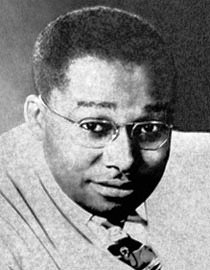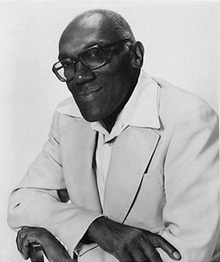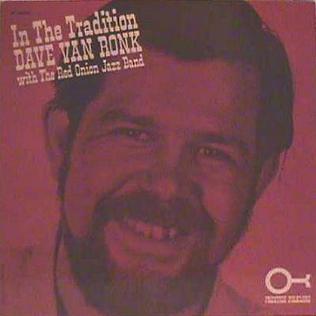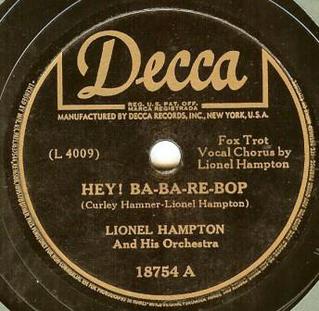Life and career
Jackson was born in Houston, Texas. [1] He was blind, and took up the saxophone and clarinet. By the mid 1930s he was based in San Diego, California, where he played with pianist Joe Liggins in the Creole Serenaders. He and Liggins then moved to Los Angeles, and in the early 1940s they formed the Honeydrippers, a band that took its name from the song "The Honeydripper", which became a number one R&B hit in 1945. Jackson was credited with both alto and baritone saxophone on the recording. Jackson also occasionally sang with the Honeydrippers, as on the 1946 single "Walkin'". [2] [3]

The clarinet is a family of woodwind instruments. It has a single-reed mouthpiece, a straight, cylindrical tube with an almost cylindrical bore, and a flared bell. A person who plays a clarinet is called a clarinetist.

Joseph Christopher "Joe" Liggins, Jr. was an American R&B, jazz and blues pianist and vocalist who led Joe Liggins and his Honeydrippers in the 1940s and 1950s. His band appeared often on the Billboard magazine charts. The band's biggest hit was "The Honeydripper", released in 1945. Joe Liggins was the older brother of R&B performer Jimmy Liggins.

Los Angeles, officially the City of Los Angeles and often known by its initials L.A., is the most populous city in California, the second most populous city in the United States, after New York City, and the third most populous city in North America. With an estimated population of four million, Los Angeles is the cultural, financial, and commercial center of Southern California. The city is known for its Mediterranean climate, ethnic diversity, Hollywood and the entertainment industry, and its sprawling metropolis. Los Angeles is the largest city on the West Coast of North America.
Jackson recorded several tracks as bandleader with the Honeydrippers, for Modern Records in 1947, when the company needed to record material to issue during the 1948 American Federation of Musicians recording ban. According to critic Richie Unterberger, they "straddled the line between the swing and jump blues eras, with a hefty dose of boogie... [but] Jackson was closer to jazz (and further removed from blues) than most..." [2] Several of his recordings were versions of jazz songs first recorded in the 1920s or earlier, such as "I Ain't Got Nobody," and "St. Louis Blues," often in a style similar to Cab Calloway. [2]

Modern Records was an American record company and label formed in 1945 in Los Angeles by the Bihari brothers.

The American Federation of Musicians of the United States and Canada (AFM/AFofM) is a 501(c)(5) labor union representing professional instrumental musicians in the United States and Canada. The AFM, which has its headquarters in New York City, is led by president Raymond M. Hair, Jr. Founded in Cincinnati in 1896 as the successor to the "National League of Musicians," the AFM is the largest organization in the world to represent professional musicians. They negotiate fair agreements, protect ownership of recorded music, secure benefits such as health care and pension, and lobby legislators. In the US, it is the American Federation of Musicians (AFM)—and in Canada, the Canadian Federation of Musicians/Fédération canadienne des musiciens (CFM/FCM). The AFM is affiliated with AFL–CIO, the largest federation of Unions in the United States; and the Canadian Labour Congress, the federation of unions in Canada.

Richie Unterberger is an American author and journalist whose focus is popular music and travel writing.
Jackson continued to perform with Liggins and to record occasionally in the 1950s and 1960s, though the band's style became outmoded with the advent of rock and roll. His final recordings were in 1969, with Liggins on tracks recorded for Johnny Otis' Blues Spectrum label. In 1983, Jackson appeared with Liggins at a "Legends of Rhythm & Blues" show recorded for TV in Los Angeles. [2] [3]

Johnny Otis was an American singer, musician, composer, arranger, bandleader, talent scout, disc jockey, record producer, television show host, artist, author, journalist, minister, and impresario. He was a seminal influence on American R&B and rock and roll. He discovered numerous artists early in their careers who went on to become highly successful in their own right, including Little Esther Phillips, Etta James, Big Mama Thornton, Johnny Ace, Jackie Wilson, Little Willie John, Hank Ballard, and The Robins, among many others. Otis has been called the original "King of Rock and Roll" and the "Godfather of Rhythm and Blues".
A compilation of Jackson's recordings for Modern was issued by Ace Records in 2000. [3] He died in Los Angeles in 2001. [1]

Ace Records Ltd. was started in 1978. Initially the company only gained permission from the label based in Mississippi to use the name in the UK, but eventually also acquired the rights to publish their recordings. When Chiswick Records' pop side was licensed to EMI in 1984, Ace switched to more licensing and reissuing work. In the 1980s it also gained the licensing for Modern Records, and its follow-up company Kent Records, whilst in the 1990s, the company bought the label(s) including all original master tapes.








